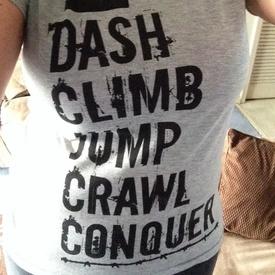Nutrition Labels Inaccurate?

Hellbent_Heidi
Posts: 3,669 Member
Saw this on the news this morning while I was at the gym... its interesting (although not too surprising)
"Recent studies show that the amount of pounding, slicing, mashing and perhaps even chewing that goes into preparing and eating food affects the number of calories people get. For some foods, a proportion of the calories in them remains "locked up" during digestion, and isn't used by the body. People also expend some of the energy from food just digesting it; and even the bacteria in people's guts steal a fraction of food's calories. None of these factors are accounted for in our current system for calculating calories, which dates back more than 100 years.
Scientists have always known that calorie counts are just estimates. And over the years, some scientists have called for changes to the system. Now, researchers are again shining a spotlight on the issue, saying an overhaul of the calorie count system is needed so consumers have a better idea of exactly how many calories they get from the food they eat.
"If we're going to put the information out there on the food label, it would be nice that it's accurate," said David Baer, a research physiologist at the U.S. Department of Agriculture's Human Nutrition Research Center in Beltsville, Md. In a study last year, Baer and colleagues showed that almonds have 20 percent fewer calories than previously estimated. Now, the researchers are considering retesting other foods, including some types of whole grains and legumes.
For the most part, the inaccuracies are small, but some foods may have actual caloric values that differ from the estimated values by as much as 50 percent, experts say"
Read more: http://www.foxnews.com/health/2013/02/04/calorie-labels-inaccurate-experts-say/#ixzz2LGL1QL8o
"Recent studies show that the amount of pounding, slicing, mashing and perhaps even chewing that goes into preparing and eating food affects the number of calories people get. For some foods, a proportion of the calories in them remains "locked up" during digestion, and isn't used by the body. People also expend some of the energy from food just digesting it; and even the bacteria in people's guts steal a fraction of food's calories. None of these factors are accounted for in our current system for calculating calories, which dates back more than 100 years.
Scientists have always known that calorie counts are just estimates. And over the years, some scientists have called for changes to the system. Now, researchers are again shining a spotlight on the issue, saying an overhaul of the calorie count system is needed so consumers have a better idea of exactly how many calories they get from the food they eat.
"If we're going to put the information out there on the food label, it would be nice that it's accurate," said David Baer, a research physiologist at the U.S. Department of Agriculture's Human Nutrition Research Center in Beltsville, Md. In a study last year, Baer and colleagues showed that almonds have 20 percent fewer calories than previously estimated. Now, the researchers are considering retesting other foods, including some types of whole grains and legumes.
For the most part, the inaccuracies are small, but some foods may have actual caloric values that differ from the estimated values by as much as 50 percent, experts say"
Read more: http://www.foxnews.com/health/2013/02/04/calorie-labels-inaccurate-experts-say/#ixzz2LGL1QL8o
0
Replies
-
Interesting, we'll see if they change.0
-
absolute rubbish.
So you're/they're telling me that our gastric juices, metabolism, etc are the same... in every person... and therefore labels need to change to "estimate" (because it couldn't be any more than this) calorie counts better?
The nutrition labels are what are in the food, not how our body processes them.0 -
Read "The End of Overeating" or "Catching Fire: How Cooking made us Human." there's actually a growing body of evidence that suggests that food prep methods affect how much we extract from our food, calorically. (note: "processed" food tends to be easier to digest and extract more calories out of. A lot of chain restaurant food comes essentially 'pre-chewed" and we can do more with it, metabolically).
Food labels tell us, essentially, the maximum that could be extracted from a food. They put a sample in a "bomb calorimeter" and burn it to ash and measure the energy that results. But we don't burn all our food to ash, and different people have been shown to extract different amounts of nutrition, as well as different preparations resulting in different extraction rates.0 -
I am pretty sure that chewing and digesting fall under metabolism. If we want to be this precise, we would also need to weigh our excrement.0
This discussion has been closed.
Categories
- All Categories
- 1.4M Health, Wellness and Goals
- 396.9K Introduce Yourself
- 44.2K Getting Started
- 260.9K Health and Weight Loss
- 176.3K Food and Nutrition
- 47.6K Recipes
- 232.8K Fitness and Exercise
- 454 Sleep, Mindfulness and Overall Wellness
- 6.5K Goal: Maintaining Weight
- 8.7K Goal: Gaining Weight and Body Building
- 153.3K Motivation and Support
- 8.3K Challenges
- 1.3K Debate Club
- 96.5K Chit-Chat
- 2.6K Fun and Games
- 4.5K MyFitnessPal Information
- 16 News and Announcements
- 18 MyFitnessPal Academy
- 1.4K Feature Suggestions and Ideas
- 3.1K MyFitnessPal Tech Support Questions



